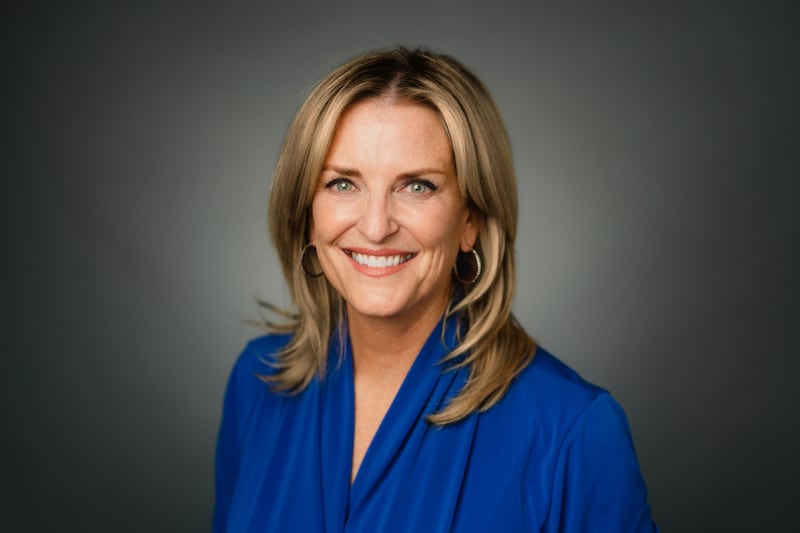This story appears in the December issue of Utah Business. Subscribe.

Ian Corbett | Technologist | auticon US
“As someone who is neurodivergent, I find myself leveraging unique strengths, such as undivided focus and seeing things from a different perspective. … Different operating systems, such as Windows, Mac and Linux, process information in different ways. Being able to leverage the strengths of different operating systems can only lead to a net positive for the business. Just like operating systems, having a neurodiverse team with different ways of seeing and processing information will only add value to the business.
In my experience, people hear autism and immediately think about the negatives. However, I excel in many ways and provide great value to a team. … I work very well when responsibilities and expectations are clearly set. I’m happiest when there’s very little room for confusion. Having a supervisor who takes the time to detail these things from the start is neuro-inclusive and supportive.
Take the time to get to know a person as an individual. Focus on their strengths and find ways to make the best use of those strengths versus just focusing on weaknesses. I like being useful. Being in a service role, there are tasks and actions that are very clearly achieved each day, ensuring everything works as it should. Helping people with problems is very satisfying.”

Isha Dash | Chief Customer Officer | auticon US
“Hiring people who are neurodivergent is not only a step toward a more inclusive world, which is a great thing, but it’s also a strategic advantage. Neurodiversity brings unique perspectives and different communication styles that help businesses stay agile and innovative.
I recall a team meeting where a senior manager was speaking. Usually, the societal norm is to keep quiet and observe. One autistic team member spoke up and told the senior manager in a matter-of-fact way that their approach was inaccurate. The senior manager was actually pretty comfortable with that feedback, and I think it paved the way for a lot of people to speak up.
Creating a work environment that values flexible communication and recognizes each person’s strengths not only empowers neurodivergent employees but also enhances collaboration, engagement and productivity across the entire team — a benefit for everyone.”

Samantha Easter | Senior Communications Manager | Mountain America Credit Union
“Neurodiverse people tend to be nonlinear thinkers, processing information in more of a webbed pattern. We’re able to make connections and see opportunities that others don’t. … We’re oftentimes very driven, very engaged and very loyal, mainly because a lot of us don’t like change. Once we get into a place, we build deep, authentic connections in a way that’s almost old-fashioned.
We also notice problems that need to be solved and are willing to solve them. That proactiveness, that drive, that passion, that curiosity, that intrapreneurship — that’s what makes us great employees. … It’s not a matter of, ‘Should I hire someone who is neurodiverse?’ It’s, ‘How do I support the people I have today and may have in the future?’
In a previous job, my boss used to call me on my cell phone. Every time, it would give me a panic attack because I don’t like phone calls. I wouldn’t even hear the first part of the conversation because I would be coming down from an adrenaline rush. Finally, I asked him, ‘Can you please message me before you call?’ And he did. I was able to get him to change his behavior in a small but very meaningful way.”

Sharlene Wells | SVP, Public Relations & Organizational Communications | Mountain America Credit Union
“Diversity — in all its forms — is integral to our success. Diversity of thought is really what I’m after to help us approach both challenges and opportunities in the best way possible. Sam, one of our employees, has almost single-handedly changed how many of us at Mountain America understand the tremendous advantage neurodiverse talent brings because she has been so open and clear about her neurodiversity. We are fully aware that she might — and likely will — ask uncomfortable questions. We know that she will surface topics most would silence or avoid. She comes up with unexpected solutions, different ways to look at something common, and is just fine throwing a wrench into a plan. Of course, not everything gets adopted — the same for the rest of us — but we always end up thinking more effectively because of her contributions.”

Weslie Ricks | Founder & Disability Consultant | Divergent Talent Consulting
“People who are neurodiverse are typically those who communicate, process information and socialize with others in a way that’s different from what’s considered ‘normal.’ Neurodiversity is a competitive advantage; neurodivergent people think differently. They can approach problems from a unique perspective, which leads to innovation. Most neurodivergent people I’ve met are expert problem solvers because they’ve had to navigate a world that wasn’t built for them.
A lot of times, employers look for culture fit when, really, they should be looking for culture add. Sometimes, a new hire who’s neurodivergent may need a little more time to ramp up, but it’s completely worth it, given that retention rates for people from this community are so astronomically high. If you put a little bit more investment upfront, it will save you a lot in the long term.
Sometimes, people get scared, thinking that if they hire somebody who’s autistic or disabled, it’s going to be a lot of work. When I outline that 58 percent of workplace accommodations don’t cost anything and that the median cost for the remaining percentage is about $500, it disarms a lot of people. It makes them realize this won’t be as hard as they think.”

